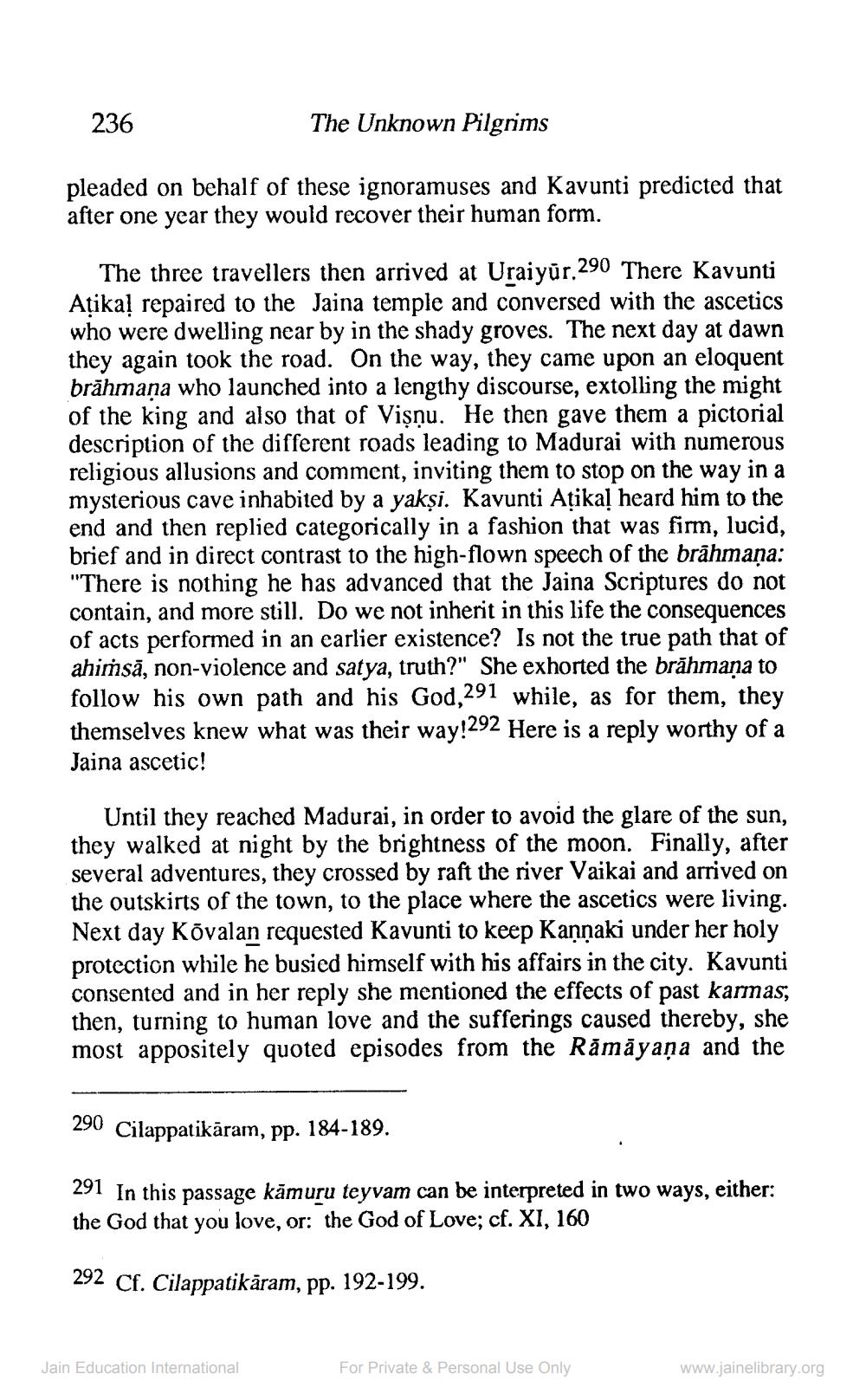________________
236
The Unknown Pilgrims
pleaded on behalf of these ignoramuses and Kavunti predicted that after one year they would recover their human form.
The three travellers then arrived at Uraiyūr.290 There Kavunti Aţika! repaired to the Jaina temple and conversed with the ascetics who were dwelling near by in the shady groves. The next day at dawn they again took the road. On the way, they came upon an eloquent brāhmana who launched into a lengthy discourse, extolling the might of the king and also that of Vişnu. He then gave them a pictorial description of the different roads leading to Madurai with numerous religious allusions and comment, inviting them to stop on the way in a mysterious cave inhabited by a yakși. Kavunti Aţika! heard him to the end and then replied categorically in a fashion that was firm, lucid, brief and in direct contrast to the high-flown speech of the brāhmaṇa: "There is nothing he has advanced that the Jaina Scriptures do not contain, and more still. Do we not inherit in this life the consequences of acts performed in an earlier existence? Is not the true path that of ahiṁsā, non-violence and satya, truth?" She exhorted the brähmana to follow his own path and his God,291 while, as for them, they themselves knew what was their way!292 Here is a reply worthy of a Jaina ascetic!
Until they reached Madurai, in order to avoid the glare of the sun, they walked at night by the brightness of the moon. Finally, after several adventures, they crossed by raft the river Vaikai and arrived on the outskirts of the town, to the place where the ascetics were living. Next day Kõvalan requested Kavunti to keep Kaņņaki under her holy protection while he busied himself with his affairs in the city. Kavunti consented and in her reply she mentioned the effects of past karmas, then, turning to human love and the sufferings caused thereby, she most appositely quoted episodes from the Rāmāyaṇa and the
290 Cilappatikāram, pp. 184-189.
291 In this passage kāmuru teyvam can be interpreted in two ways, either: the God that you love, or: the God of Love; cf. XI, 160
292 Cf. Cilappatikāram, pp. 192-199.
Jain Education International
For Private & Personal Use Only
www.jainelibrary.org




